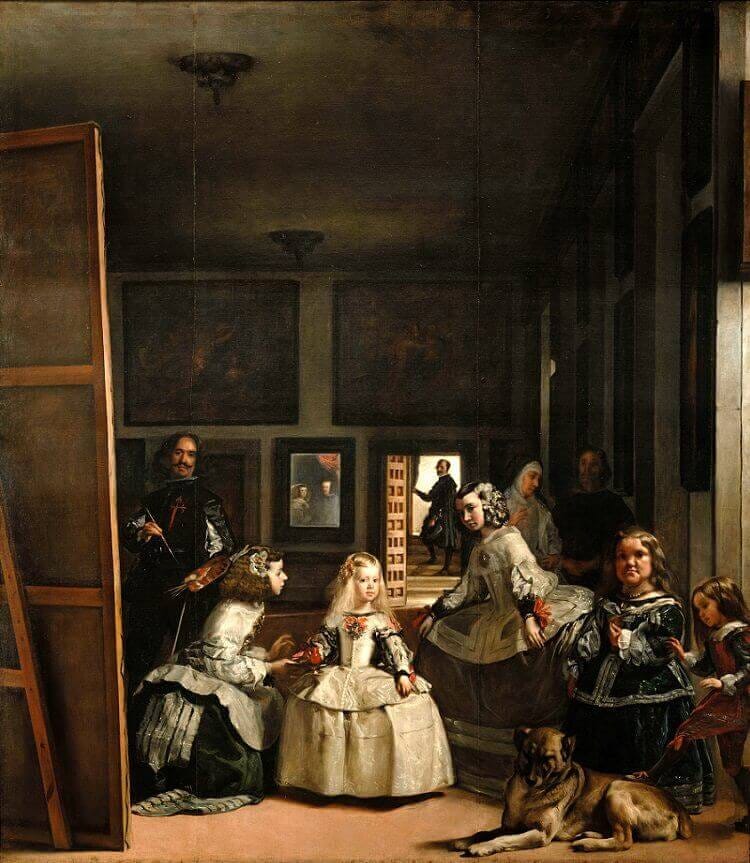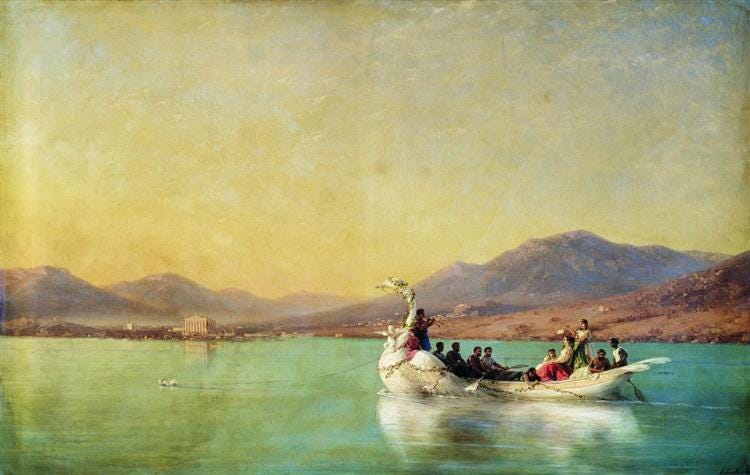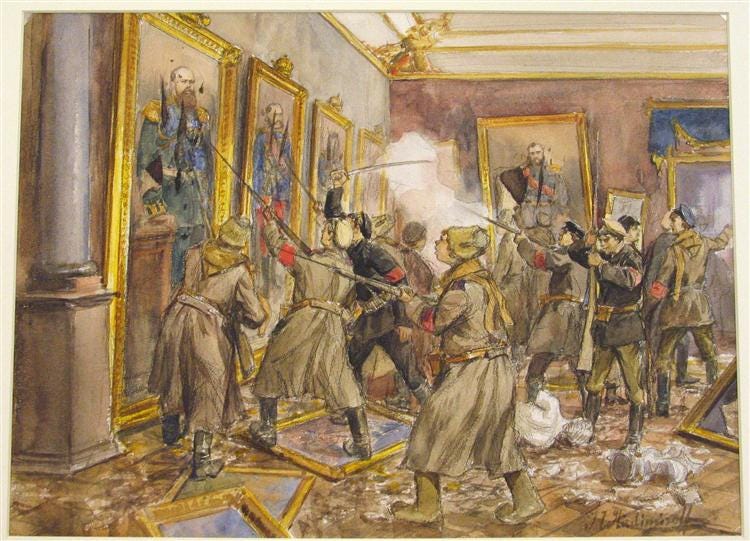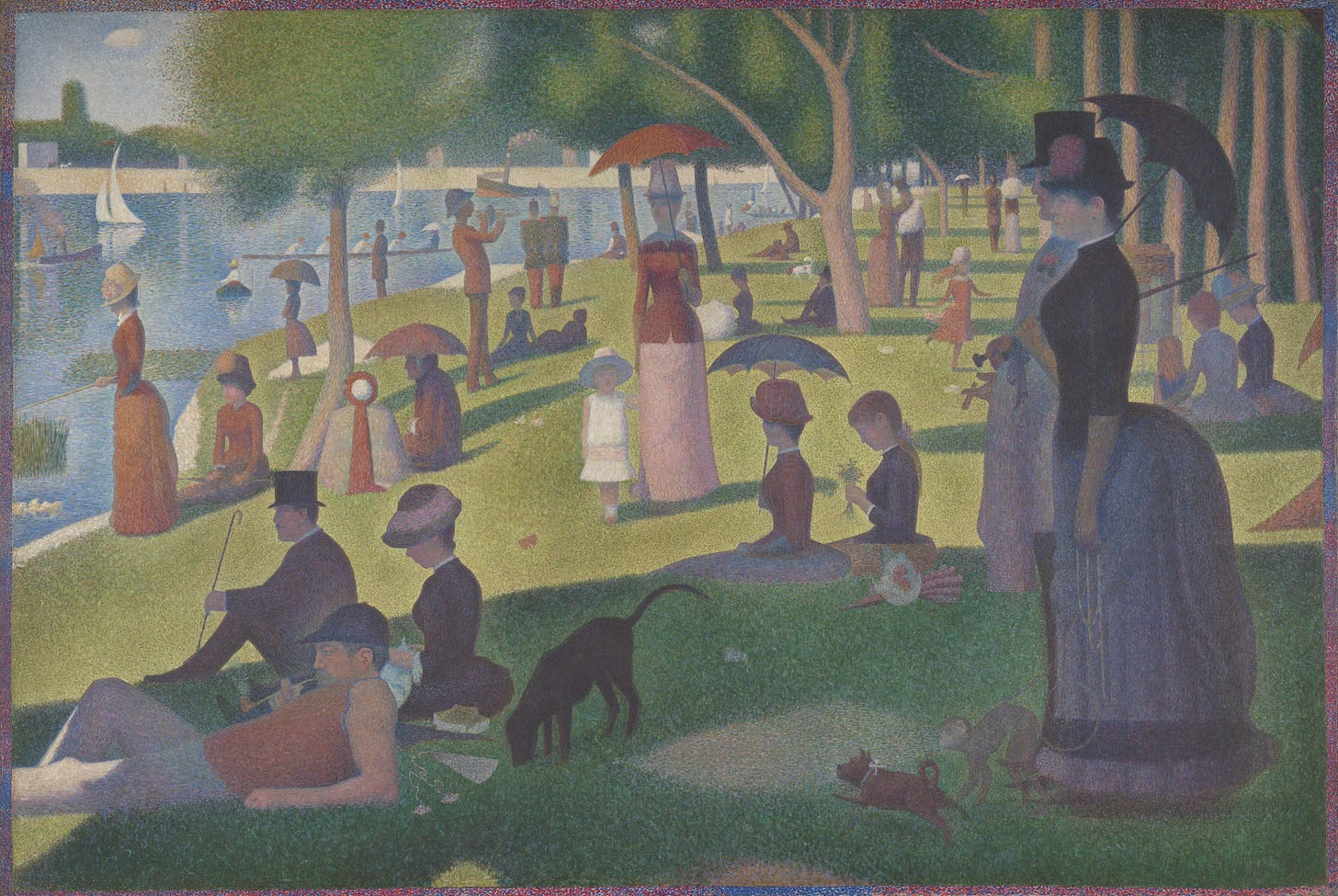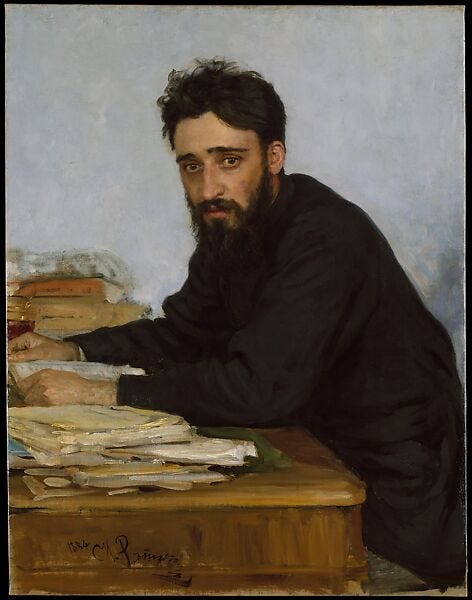Art, Then and Now
The human spirit still reaches for the Form of the Good, while modernity feeds it scraps
One of the most liberating things of having virtually no readership is that I am essentially free to write about whatever I feel like writing about, without needing to worry about my audience’s topical preferences. This affords me a great degree of creative license, as I have no “niche”.
(As an aside, I’d venture to say that I hope that fate and my own disciplined intellectual honesty keep it that way; niche-less, with or without readers).
When I first started writing, I essentially aspired to be “my own version” of Chris Williamson’s Modern Wisdom; a copycat, in essence and form, regurgitating much of the same self-help dogma that the consuming-masses seek (albeit without the guests). As Dostoevsky said so brilliantly in Notes from Underground, this was one of those things that I refused to admit even to myself, much less anybody else. It felt better to just seem profound and wise, pretending as if many of my “lessons” were my own.
Then, suddenly, I ceased to create anything for the better part of a year. While this hiatus had many other small reasons, I realize that it was largely due to my waning motivation to drone on and on about the same bastardized topics that every other “early-20s”, disenchanted young person with creative ambition was pursuing as well. Such topics aren’t even “soulless” in-and-of themselves, but rather the communal need to harp on them ad nauseam is.
Several other factors besides my own lack of creativity caused me to wonder:“What is it that makes art compelling in the first place?”.
Clearly, not every artist, author, poet, film director, or essayist can release a The Brothers Karamazov, Starry Night or Casablanca every month - nor should they, necessarily. But what is it about these artists, when they do emerge, that allows them to “advance paradigms” with timeless pieces, or go down in history as definitive voices in their respective genres?
THE FORM OF THE GOOD
The roots of these ideas about “art” go back even unto Classical Greece, where aesthetics, beauty, philosophy and drama were first elucidated. A core message of Aristotle’s Ethics is that the form of the Good is identified, for any trait, as the mean between two extremes.
For example, an “Even Tempered” man is one who can adequately control his anger to the right degree and in the right circumstances. To get angry too easily is to be a “hot head”, while to not get angry at anything at all is to be a “pushover”. (After all, Jesus told us to “turn the other cheek”, but He was Himself not above calling his interlocutors a “pit of vipers” or getting physically angry at the “commercialization” of the Temple.)
Consider “Bravery” as well. A “Brave” man strikes the correct balance between “Fear” and “Rashness”, moved only by principled conviction to disregard his own well-being in defense of a virtuous and righteous cause. He consciously embodies the “mean” about bravery by refusing to abandon his cause when victory is uncertain (Fear), nor allowing himself to act on unexamined, self-serving, berserk impulses (Rashness). He steps up when he needs to, and he acts with a virtuous end in mind from the outset.
In the world before global monoculture, each region and people group had their own approximations of the “Good”, whether or not they even knew who Aristotle was, and thus myths, value systems and religious beliefs had evolved to function as the formative frame by which people appraised something as “good”. (Many of these approximations in Europe were undergirded and buttressed by Christian moral values, if a “common denominator” had to be approximated).
For example, Italians had their own fairy tales, holidays, culinary and artistic cultures, as did the English, Spanish, Dutch, Germans, Russians and so on.
Being a child in this vein of traditions, I’m therefore a cultural descendant of the Classical Era, Christendom, English and most-recently Southern American culture (in that order of evolution). Therefore, I’m inclined to agree with several broad and oversimplified philosophical notions:
There is an objective and indisputable good, which is most often characterized today as “God”
Values like “Bravery”, “Integrity”, “Loyalty” and “Wisdom” are desirable, while their inverse should be avoided.
The is a such thing as Truth, and while it may differ from one culture to another, for a society to function effectively “Truth” needs to be agreed upon. Otherwise, internal dissolution will follow.
Beauty is a result of a combination of several factors, which include things like care, cultivation and attention over time, and symmetry.
In today’s world however, there is little to no agreement on these points.
In the wake of the Second World War, the “globalized monoculture” was forming by forcing all of these once-distinct cultures together while, at the same time, many prominent intellectuals sought to systematically deconstruct the very cultural commonalities upon which any previous transnational cohesion had existed.
I would like to provide a noteworthy caveat here:
The globalizing efforts were, I like to hope, done in a good faith attempt to promote free trade and prosperity for victors and losers alike. Similarly, the cultural deconstruction was, in my estimation, a type of collective “trauma response” in the aftermath of the World Wars and the Cold War. There is no doubt that decades of poverty, corruption, conflict, death and competing ideologies had prompted these thinkers to conclude that it was the cultural foundations themselves that had not only enabled, but precipitated such travesties.
Despite my youth, I’m inclined to disagree.
Viewed through the methodology of “the mean”, I believe that much of the deconstructionist movements, like the totalitarian regimes that had caused the destruction in the first place, had “missed the mean” in their response to the understandably horrifying events of the early 20th century. Rather than seeking to heal the ailing soul of the collective West, they concluded that the defining paradigms of the West ought to be done away with, letting each person choose for themselves what was true, noble and good.
What they left in their wake, as their ideologies have begun to reach their terminus, is an undercurrent of degeneracy and nihilism that has infected even the lesser-moored denominations of Christianity itself, a religion fundamentally predicated on many Aristotelian and Neoplatonist philosophical concepts.
In a roundabout way, it was the trial and execution of the Good, done by many in a misled pursuit of the Good itself by the “process of elimination”, that caused us to go from Monet and Tolstoy to Basquiat and BookTok in a little over a century.
OUR WORLD TODAY
Much of modern art, from what I’ve seen in local galleries at least, is deemed “good” based on the degree to which it shocks us, and much of the modern books that I’ve read (believe me, I’ve tried in open-minded good faith) seem to be recommended and commended based on how well it “entertains” and executes its “world building”. I’ve stopped several modern books (published within the last 20 years) at page 100 because there was no plot direction, but instead mostly the occasional witty one-liner and “shock scene” with decent prose.
Since we’ve long-since forgotten (or written-off entirely) the cultural dialogues that motivated writers like Dostoevsky or Tolkien, we’ve entered an era where artistic barriers are instead “broken” by the inclusion of novelty for novelty’s-sake (which usually means sexual or gory scenes), or in the case of most films, enough special effects to send a pre-modern into epileptic shock.
To use neurological terms, we overwhelm our Amygdala and Visual Cortex with mere stimuli, rather than engage our Prefrontal Cortex with something that asks us to think in return.
Why would Sam Gamgee follow Frodo into Mordor? Why did Raskolnikov feel guilt despite his acting in accordance with his intellectual ideals (and why did prolonged psychological anguish eventually cure him)? What do these internal dialogues about these fictional characters have to offer us when we examine our own lives in the same manner?
Georges Seurat used over 200,000 individual dots of paint to compose "A Sunday on La Grande Jatte", and Diego Velázquez also painted himself as the painter into his portrait of the royal children in his “Las Meninas” - a painting that gets more interesting and more detailed the longer you look at it.
These artists hid pieces of themselves in their works, put their own infirmities and fears on display for all of the world to see, and did so in the hope that their creations would revivify their readers and viewers during and after their lifetimes. Furthermore, many published their works as a hobby, a labor of love, expecting very little and often receiving no acclaim at all during their lifetimes.
Today we have galleries filled with abstract art that we’re made to believe we’re not “cultured’ enough to understand, or art whose stated purpose is to make us believe that we are some form of “villain”.
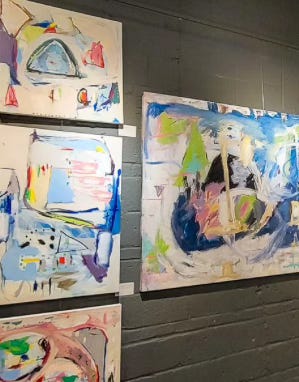
I’d argue that the truest art forms require work to understand, and reflection to take anything away from, whereas watching the latest Marvel film, visiting an adult finger-painting gallery, and haphazardly labeling anything else that is deemed slightly controversial as “politically incorrect” does not.
REVIVING BEAUTY
I believe that this cultural-artistic void is due largely to the deconstruction of the very forms that our forbears spent millennia articulating and honing. By severing ourselves from the “great conversation” in favor of a pain-free expediency, we’ve left ourselves only with its remnants.
It’s no coincidence that many movies and books released today are either remakes/republications of works of the past, or sequels forced upon the public by entities that are more “business” than art.
I say this with sadness, not anger or accusation; We’ve reached a stage where all that we know to do is dig up old forms by re-making works that we still find impactful (either due to their “nostalgia value” or their continued commercial value). At the same time, we’ve decided that things like “painting portraits” are needless and too time-consuming when our iPhone 16 Pro can simply take a photo that would put Ilya Repin to shame.
Paradoxically, by “liberating” ourselves from the forms and foundations of the past in the name of progress, we’ve all but stalled progress altogether. We’ve been abandoned to a world that was intentionally handed to us largely devoid of meaning, and so it is only the natural human inclination to seek the form of the Good as we know it - often that which induces nostalgia for times which were better.
Just as it is financially safer for Disney to pump out more uninspired Star Wars shows (because fools like myself will cave and watch them - at least up until the last season of The Mandalorian sealed it’s fate in my eyes), so too is it safer for our identities to agree, to keep quiet, to conform and most puzzlingly, to refute the opinions of those who do make their voice heard (though we’ve chosen to leave our own convictions unarticulated).
In my life, I have decided to tell the truth - even when “truth” in my eyes is little more than another opinion in an ocean of other such opinions. I have decided to publish, put my ideas in the open, free to be scrutinized and refuted by others (Heaven forbid, I may learn something). I hope that others will continue to do so as well on platforms like this.
Think what I may about that guy who wrote an article justifying violence against Conservative voters, and Conservatives who likewise go to great lengths arguing for foreign intervention that prolongs bloodshed unnecessarily to serve “our” interests, I must say that they are at least contributing to the conversation as best they know how - despite the dissension and hellfire they receive in return.
To speak out at all, even if your opinion isn’t organically developed within your own mind, takes courage. To try to create something, or revive the beauty and truth of ages past so that it can be added-to, takes courage and skill.
So, that being said, this is my contribution for today.


